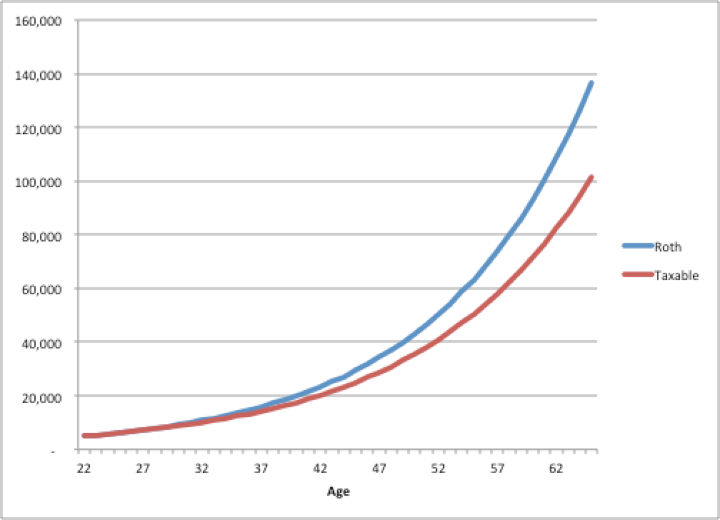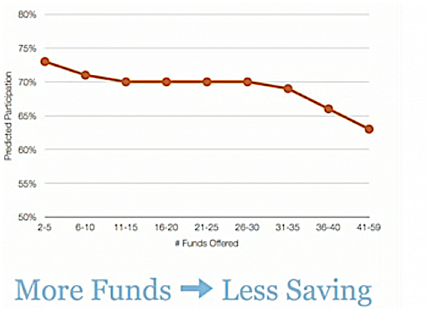401(K) Guide for 2013
Post on: 17 Май, 2015 No Comment

Related
Ah, the new year: a time for us all to make grand plans. Well quit smoking. lose ten pounds, be nicer to the neighbors, and finally start saving for retirement. Alas, studies show that one-quarter of all New Years resolutions are broken in the first week — and the rest usually fall by the wayside in the days that follow.
This year, though, why not choose to follow through on at least one of your resolutions? Make this the year you finally figure out your retirement savings.
According to the most recent report from the Congressional Research Service, nearly half of American workers participate in retirement plans offered by their employers. About two-thirds of these folks have defined-contribution plans, such as a 401(k). (Some folks have access to a 403(b) plan or the Thrift Savings Plan. Though these arent identical to 401(k) plans, advice for each is generally the same.)
For many, making the most of a 401(k) is the key to saving for retirement.
Advantage of a 401(k)
There are a lot of reasons to love the 401(k). For one, your 401(k) makes contributing to retirement automatic. Once you sign up for your companys plan, your retirement saving comes directly out of your paycheck. You can set it and forget it, only making changes when you want to increase (or decrease) your contributions. This takes the human element out of the investing equation, which is one of the best ways to increase investment performance .
Even better, 401(k) contributions and earnings are tax-deferred. In plain English, that means you dont have to pay taxes on the money you put into a 401(k) until you withdraw it. Youre not taxed on the profits (the returns in the account) until then, either. This is a big advantage over a traditional investment account.
For instance, if you earn $50,000 per year and you put $5,000 into your 401(k), your taxable income drops to $45,000; if your marginal income-tax rate is 25%, this would save you $1,250 in taxes. And you wont be taxed on that $5,000 contribution (or any returns it earns) until you take the money out at retirement, so your investment has a chance to grow even faster than in a regular investment account.
But the biggest advantage of a 401(k) is the employer match. Many companies match at least a portion of the money their workers set aside for retirement. IBM. for example, currently matches employee contributions dollar for dollar up to six percent of their income. Most company matches arent so generous, but theyre still worth taking full advantage of. In effect, you can give yourself a raise by taking advantage of the employer match although you wont see the effects of the raise until you retire.
Disadvantages of a 401(k)
Unfortunately, 401(k)s arent perfect. For one thing, once you put the money into a 401(k), you cant easily access the cash if you end up needing it for something else. Except in cases of hardship. if you pull the cash out before age 59-1/2, youll be socked not only with taxes, but also a 10% early withdrawal penalty. (On the other hand, youre generally required to begin pulling money out by the time youre 70-1/2.)
Plus, 401(k) plans are usually subject to a vesting policy. Vesting is the process by which you gain ownership of the employer match portion of the account. You always own the money youve put into the plan yourself, but you only gradually gain ownership of your companys contributions. You might own none of them during the first year you participate, 20% the second year, and so on. If you leave the company before youre fully vested, you wont get 100% of the employer match. Check with your HR department to learn more.
But the biggest problem with 401(k)s is that they generally offer only limited investment options. The firm that manages your companys retirement accounts probably gives you a small menu of mutual funds from which to choose. Your challenge is to find those best suited to your needs. (Money magazine offers some solid advice on how to cope with a lousy 401(k) plan .)
Making the Most of Your 401(k)
If youre ready to rock your 401(k) in 2013, here are a handful of ways to make the most of your retirement contributions:

- Understand the rules. Yes, your employee handbook is as boring as dirt — especially the part devoted to retirement saving. Read it anyhow. The hour or two you spend learning about your companys rules and requirements for its 401(k) plan will pay dividends in the long term. You need to know how to contribute, how much the company will match, and what options you have for investment. If you have questions, ask. Once you understand your 401(k) plan, you can start saving.
- Review your investment options. Because most 401(k) plans offer limited choices, you need to take the time to figure out which is best for you and your situation. In some cases, this may be a target-date fund , which will invest your money based on when you plan to retire and automatically reduce the risk level of your investment portfolio as you approach that date. In others, it may simply be the lowest-cost fund available. (All things being equal, low-cost funds generally provide better returns.) But the best choice of all is probably some sort of broad-market index fund. (To learn more about investing basics, check out Mike Pipers Oblivious Investor blog.)
- Pay yourself first. Most folks save for retirement with whatevers left at the end of their paycheck. The problem is that its easy to come up with other uses for the money, so theres never much leftover for the 401(k). If youre serious about boosting your retirement savings, do the reverse. Invest first, and live on whatevers left over.
- Take advantage of the employer match. How much should you save for retirement? As much as possible. At the very least, set aside enough to get the full employer match. This is almost like free money, and one of the very best investment returns you can possibly earn.
- Bank your raises. One of the best ways to boost your savings is to set aside money from a raise. When most people get a raise, they increase their spending to match. But youre smarter than that. Instead of succumbing to lifestyle inflation. set any raises to increase your retirement savings until youre saving the maximum amount. You wont even notice the money is missing.
- Go for the max. Speaking of maximums, the law allows you to contribute up to $17,500 to your 401(k) plan in 2013. Only five percent of Americans with 401(k)s save the maximum. Most dont come anywhere close. Find a way to be one of the elite few who saves as much as possible, and your retirement savings will rocket to the stratosphere.
- Dont touch the money. Once you start building a big balance in your 401(k), it can be tempting to move the money around. You want to withdraw it to buy a house or a boat. You want to shift from one investment to another. Resist the urge. Taking the money out of the account negates all of your hard work (especially when you consider the penalties you pay). And every time you move the money from one fund to another, you end up paying fees, fees that take away from potential profits.
- Be smart with rollovers. When you leave a company, its generally best to move your money from their 401(k) into an IRA. This instantly gives you a much wider range of investment options, so that youre better able to pursue your financial goals. Heres more on how to do a 401(k) rollover .
If your workplace does not offer a 401(k) plan, take charge. Talk to your boss (or the HR department) about creating a plan so that employees can save for retirement. If thats not going to happen, then start saving yourself. Start a Roth IRA and contribute faithfully.
The Bottom Line
Most Americans have only a foggy notion of smart investing. They set aside a little money late in their working lives and then hope the stock market will magically turn their meager offerings into a pile of gold. Thats not how it works.
In reality, the amount you save is the single biggest predictor of how much youll have saved at retirement. If you want to have money tomorrow, you need to save today. And one of the best ways to do that is through your 401(k).
J.D. Roth @jdroth
J.D. Roth is the founder of Get Rich Slowly and the author of Your Money the Missing Manual . He also writes about More Than Money at jdroth.com.














